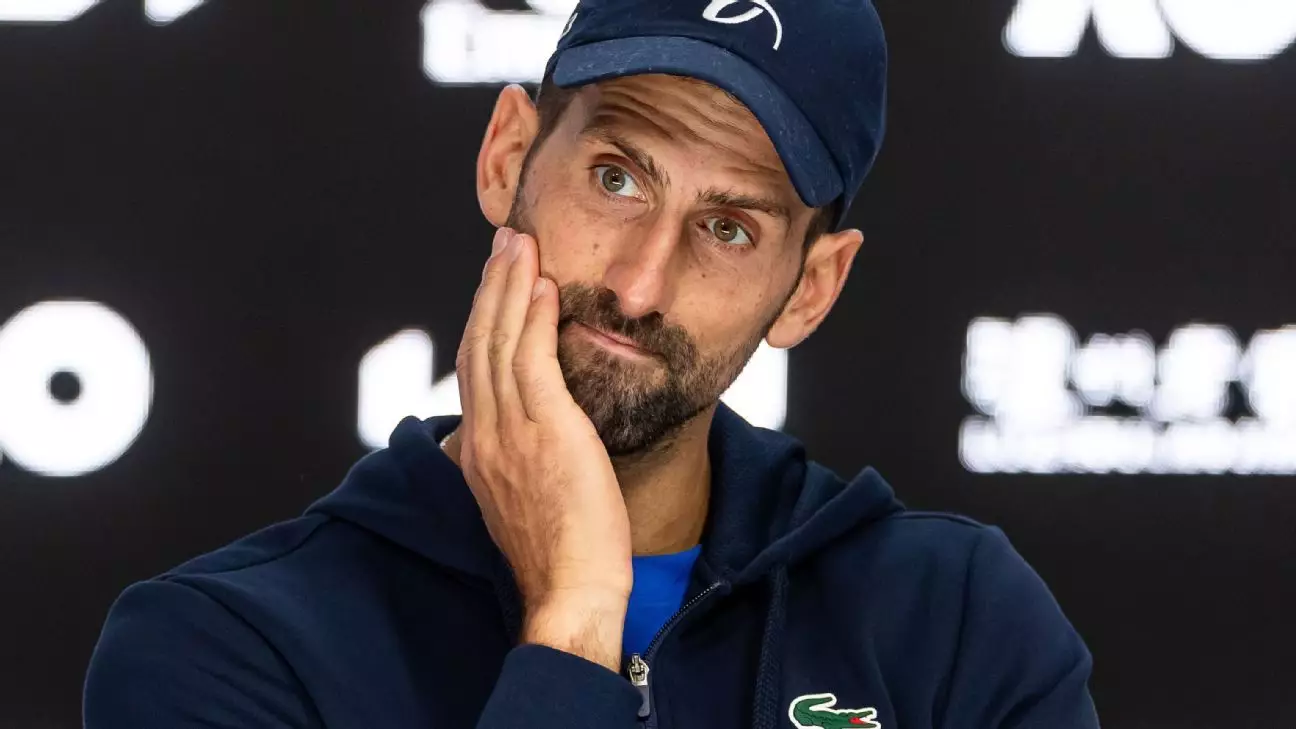In recent developments at the Miami Open, Novak Djokovic, a titan of the tennis world, has stirred the pot regarding player rights and revenue distribution within the sport. The antitrust lawsuit initiated by the Professional Tennis Players’ Association (PTPA), which Djokovic co-founded, is not merely a legal maneuver; it’s a clarion call for fundamental changes in how the sport operates. Djokovic has clearly articulated his stance: it is essential for professional players, both men and women, to increase their share of the revenues and enhance their influence within the tennis landscape.
Djokovic’s hesitance to join the plaintiffs in the lawsuit speaks volumes about his commitment to cohesion among players. His intention to allow others to take the front line in this legal battle demonstrates his nuanced understanding of leadership. He rightly perceives the potential fragmentation the lawsuit could cause within the sport, yet his underlying message remains clear: the status quo is no longer acceptable. The control exercised by the governing bodies—namely the ATP, WTA, International Tennis Federation, and the sport’s integrity agency—over player earnings and working conditions is increasingly being viewed as a monopolistic “cartel.”
The Need for Collective Action
What makes Djokovic’s stance particularly compelling is the backing from over 250 players who have echoed the need for reform through the class action suit. This backdrop sets a precedent for a united front, showcasing that the call for change resonates across a diverse player demographic. However, it is intriguing to note the voices of dissent among peers, such as Carlos Alcaraz, who not only raised concerns about being unaware of his involvement in the lawsuit but also questioned the integrity of claims made in the filing. Such divisions hint at a broader impact that any legal action could have on player relationships and the overall fabric of the sport.
The ramifications of this lawsuit go beyond just financial disputes; they touch on the essence of fair play and player autonomy within tennis. For too long, athletes have been perceived as mere commodities under the existing organizational control. With the PTPA’s lawsuit, there’s an opportunity to redefine the narrative. Players can assert themselves as stakeholders rather than just participants in a system designed without their input.
Striving for Balance While Emphasizing Unity
While Djokovic remains hopeful for a resolution that fosters collaboration among all governing bodies, he recognizes the inevitable tension that comes with litigation. His insights reveal a pragmatic view on the situation; as he expresses agreement with some aspects of the lawsuit while simultaneously acknowledging his disagreements. This layered perspective exemplifies the challenge of negotiating change within a complex ecosystem that involves multiple stakeholders.
The tennis community stands at a crossroads. With powerful figures like Djokovic advocating for reform, the potential for a transformative shift in how players are treated is within grasp. However, unity must prevail above all else to ensure that the collective voice of athletes leads to tangible improvements in their financial and working conditions. The call for more equitable treatment in tennis is not just a legal challenge; it is a fundamental movement towards recognizing the players as the heart of the sport.


Leave a Reply